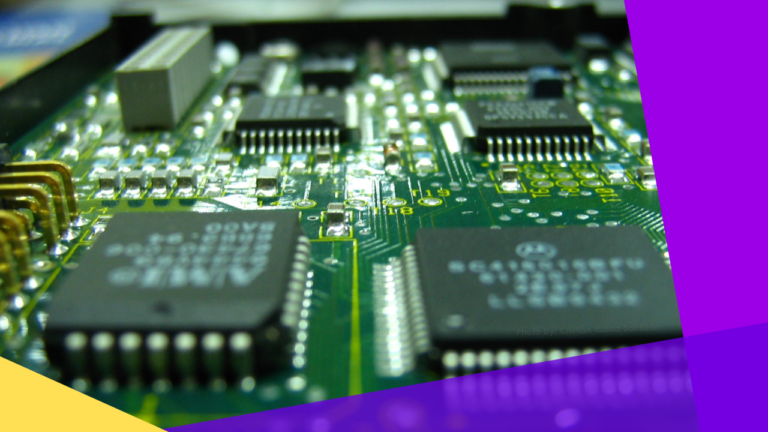AI Catalyst
AI Medical Record Management
AI Medical Record Management automates the organization, retrieval, and updating of patient records, providing healthcare providers with quick and accurate access to essential patient information.
$39.7B
According to Statista, by 2026, the global market for electronic medical records (EMRs) is projected to reach $39.7 billion, with AI-driven medical record management systems playing a significant role in the future of healthcare. [1]
On this page:
Overview
AI Medical Record Management refers to the use of artificial intelligence to streamline the handling, organization, and updating of medical records. It enables healthcare professionals to access, update, and maintain patient information efficiently and accurately, reducing the risk of human error. AI simplifies data entry, retrieval, and processing while ensuring compliance with regulatory standards like HIPAA.
Medical record management is critical in healthcare, and manual processes are often inefficient and error-prone. AI-driven medical record systems improve accuracy, accessibility, and data security. Healthcare providers need this service to reduce administrative burdens, ensure records are always up to date, and provide better patient care.
- Errors in Data Entry: Manual entry leads to inaccuracies and errors, which can impact patient outcomes.
- Time-Consuming Processes: Searching for and updating patient records manually takes significant time away from patient care.
- Lack of Real-Time Data Access: Without AI, real-time access to patient history can be delayed, affecting decision-making.
- Difficulty in Managing Large Data Volumes: As patient databases grow, managing records without automation becomes overwhelming.
- Non-Compliance Risks: Manual handling of records increases the risk of non-compliance with data protection and healthcare regulations.
Key Benefits
AI reduces human errors in medical records, ensuring accurate and up-to-date information.
AI automates the organization and retrieval of records, freeing up time for healthcare providers to focus on patient care.
AI systems use encryption and access control to protect sensitive patient data and ensure HIPAA compliance.
AI enables instant access to patient records, improving decision-making during critical moments of care.
Automating record management lowers operational costs by reducing manual labor and administrative tasks.
AI systems can handle increasing volumes of data without compromising on speed or accuracy, making it ideal for growing healthcare practices.
Our Model
We begin by understanding the specific needs of your healthcare facility and assessing the current state of your record management system.
Our team designs a tailored AI medical record management solution that aligns with your requirements, focusing on improving efficiency and compliance.
We develop the AI model to automate data entry, retrieval, organization, and compliance checks for medical records.
The AI system is seamlessly integrated with your existing electronic health record (EHR) system and other tools to ensure a smooth workflow.
Before full deployment, we rigorously test the system with real data to ensure it functions flawlessly and meets all regulatory requirements.
After successful testing, we deploy the AI system and provide ongoing support, monitoring its performance and making adjustments as needed.
Myths
AI systems can be scaled and customized for small practices, reducing long-term costs by improving efficiency.
AI systems are trained on medical datasets and can accurately interpret complex medical terms and diagnoses.
AI medical record systems use advanced encryption and security protocols, making them highly secure.
AI enhances the work of medical records staff by handling repetitive tasks, allowing them to focus on higher-value activities.
Most AI solutions are designed to integrate seamlessly with popular EHR platforms, ensuring compatibility.
AI systems are scalable and can manage vast amounts of patient data with accuracy and speed.
AI systems comply with strict data privacy regulations like HIPAA, ensuring patient confidentiality.
AI systems are designed with user-friendly interfaces, making them accessible to all levels of staff.
AI with OCR (Optical Character Recognition) technology can digitize and manage handwritten notes and records.
AI systems are continuously updated to meet new regulatory requirements, ensuring ongoing compliance.
FAQs
AI Medical Record Management automates the organization, updating, and retrieval of patient medical records to enhance accuracy and efficiency.
AI reduces human error by automating data entry, organizing records, and flagging inconsistencies.
Yes, AI systems are designed to comply with HIPAA and other healthcare data regulations to ensure the security and privacy of patient records.
AI can retrieve patient records in real-time, providing immediate access to essential information during care.
Yes, AI can process both digital and handwritten records using OCR technology to digitize paper records.
No, AI Medical Record Management integrates with your existing EHR system to enhance its capabilities.
AI systems are designed with intuitive interfaces, making them easy to use for all healthcare staff.
AI systems use advanced encryption and access control measures to ensure the security of patient data.
Yes, AI systems are scalable and can efficiently manage large volumes of records as your practice grows.
Implementation times vary, but the system can typically be deployed in 2-4 weeks, depending on the size of the practice.
Get in Touch
Talk to Our AI or Experts: Ready to transform your medical record management with AI? Chat with our AI assistant or speak with one of our experts to learn how AI can streamline your medical record workflows and improve healthcare delivery.


